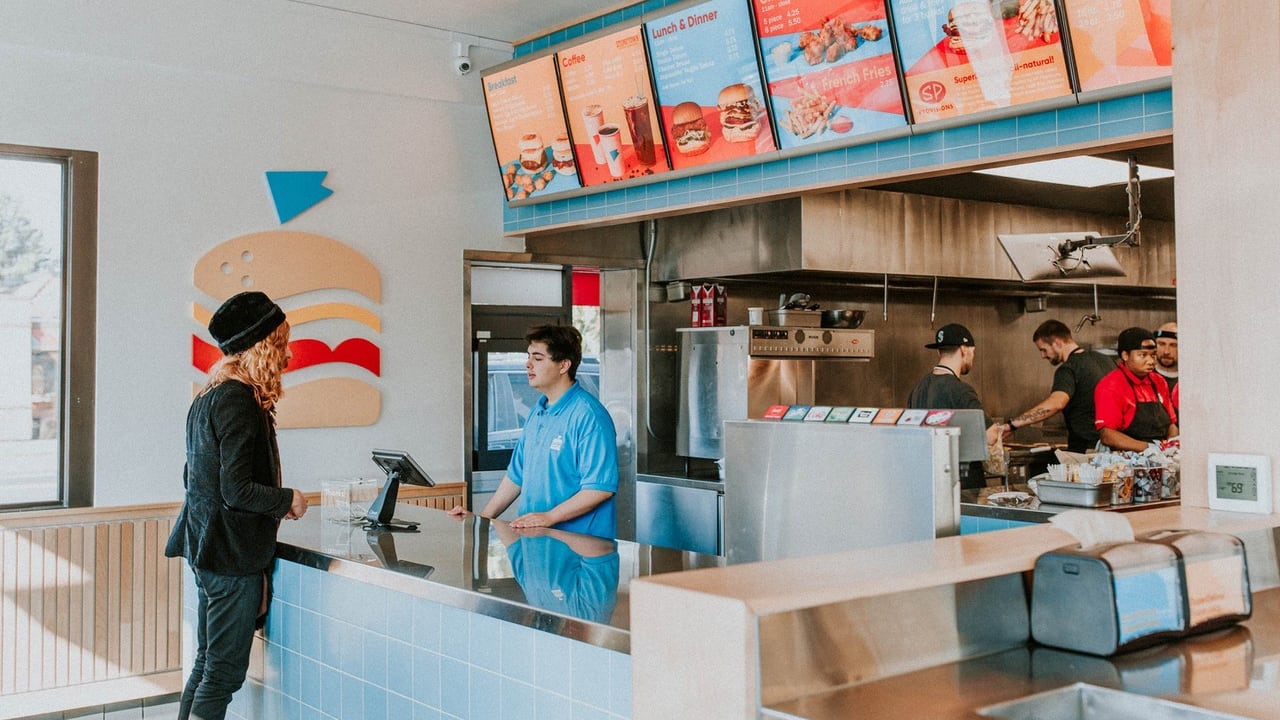This February, one of Portland's most successful restaurateurs was looking for a space to plant his next hit.
Matt Lynch owns nine restaurants across the city, including popular drive-in Super Deluxe. He checked out a commercial space in Southeast Portland for his concept of an "all-American diner." It was the second time in two years he'd toured the spot, located just blocks from his home.
But he couldn't make the numbers work.
"It didn't have a ventilation system, no bathrooms in there, you'd have to build all the walls, bring power to and fro, there was no grease trap, no plumbing," says Lynch. "It was just kind of a tough deal to make sense of."
In the hottest economy Portland has ever seen, that newly developed city-owned storefront real estate has stood empty for nearly two years.
The space is in Lents, a neighborhood where the city's economic development agency, Prosper Portland, has invested more than $75 million over the past five years to promote growth. It's in a building called Lents Commons at 5859 SE 92nd Ave. (Prosper has spent $15.5 so far on this particular project).
The project is part of a larger five-year plan launched by Prosper Portland in 2014 to revitalize Lents Town Center. The first phase of the project, completed nearly two years ago, offers 7,500 square feet of ground floor commercial space for lease.
That Prosper Portland couldn't cut a deal with a fast-casual dining hitmaker—one with exactly the neighborhood roots the city wants in its partners—renews questions about how urgently the agency takes its task of reviving long-neglected areas.
"People are saying they're disappointed," says Sabina Urdes, chairwoman of the Lents Neighborhood Association. "It just hasn't been the vibrant town center we hoped it would be. There aren't things for everyone to do. They all cost money."
She says Zoiglhaus, the new brewery that sells $15 burgers in the town center, is great for an occasional outing with her young daughter, but "it's not sustainable for us to spend that much money."
The complaint reflects long-standing tensions between Lents residents and Prosper Portland, the agency once known as the Portland Development Commission. For years, Prosper sat on vacant parcels in Lents—a strategy that enraged locals.
Boom times have finally reached Lents, replacing empty lots with apartment towers, brewpubs and a 24-hour gym. But residents still think Prosper hasn't fulfilled its promise—and point to those vacant storefronts.
The agency once again must balance its plans with wishes of locals to move with more urgency.
Prosper Portland attributes the vacancies at Lents Commons to its own choosiness about who occupies the space. The agency says it's offering priority—and subsidies—to hyper-local businesses, preferably ones run by women or people of color.
"While the leasing has taken longer than we anticipated, it's been important for us to stick to our larger strategy and vision," says project manager Thea Munchel, "to find neighborhood-serving businesses that are from and for the community."
Prosper also partially attributes the vacancies to the unfinished nature of the space, which lacks partitions, lighting and infrastructure.
That might intimidate prospective tenants, says Munchel. Prosper plans to build more infrastructure within the next six months to a year to attract tenants—the space can accommodate up to four businesses, including one restaurant.
"It's on a subfloor with no walls or partitions," says Munchel. "To be working with tenants who have never opened a brick-and-mortar store, we've found that's been a challenge."
Munchel says Prosper Portland has turned down prospective tenants because they didn't "match the community's vision." She says businesses have also backed out of leasing the space for various reasons but declined to state those reasons.
Urdes says residents have campaigned to bring in a grocery store, but adds Prosper Portland couldn't find a grocer that wanted to move in. (Urdes herself wants to open a community events collective in the space.)
"For those of us who are trying to do things for the community," she says, "it is very frustrating to fight so hard to find a space every single time when there are all these different places around here with vacant lots."
Prosper Portland says the space isn't a financial burden on the city—and even if it were, the agency tells WW the money is less important than creating the right kind of place.
"The space doesn't have a lot of ongoing costs. We don't have any debt, we own the building outright," says Karl Dinkelspiel, a development manager for the agency. "Prior to the I-205 freeway, Lents had its own character and little downtown. That's what people are hoping is re-created."

